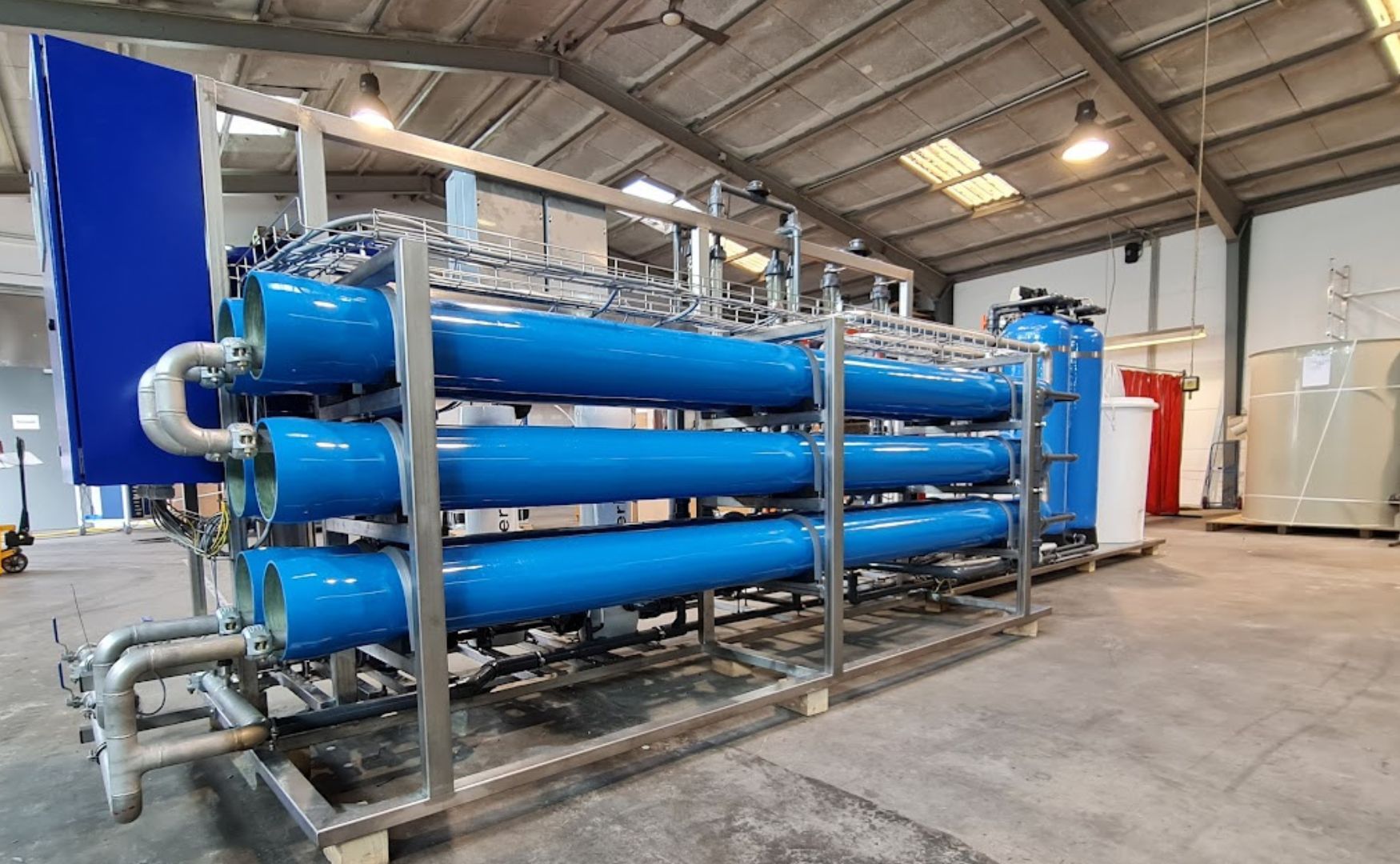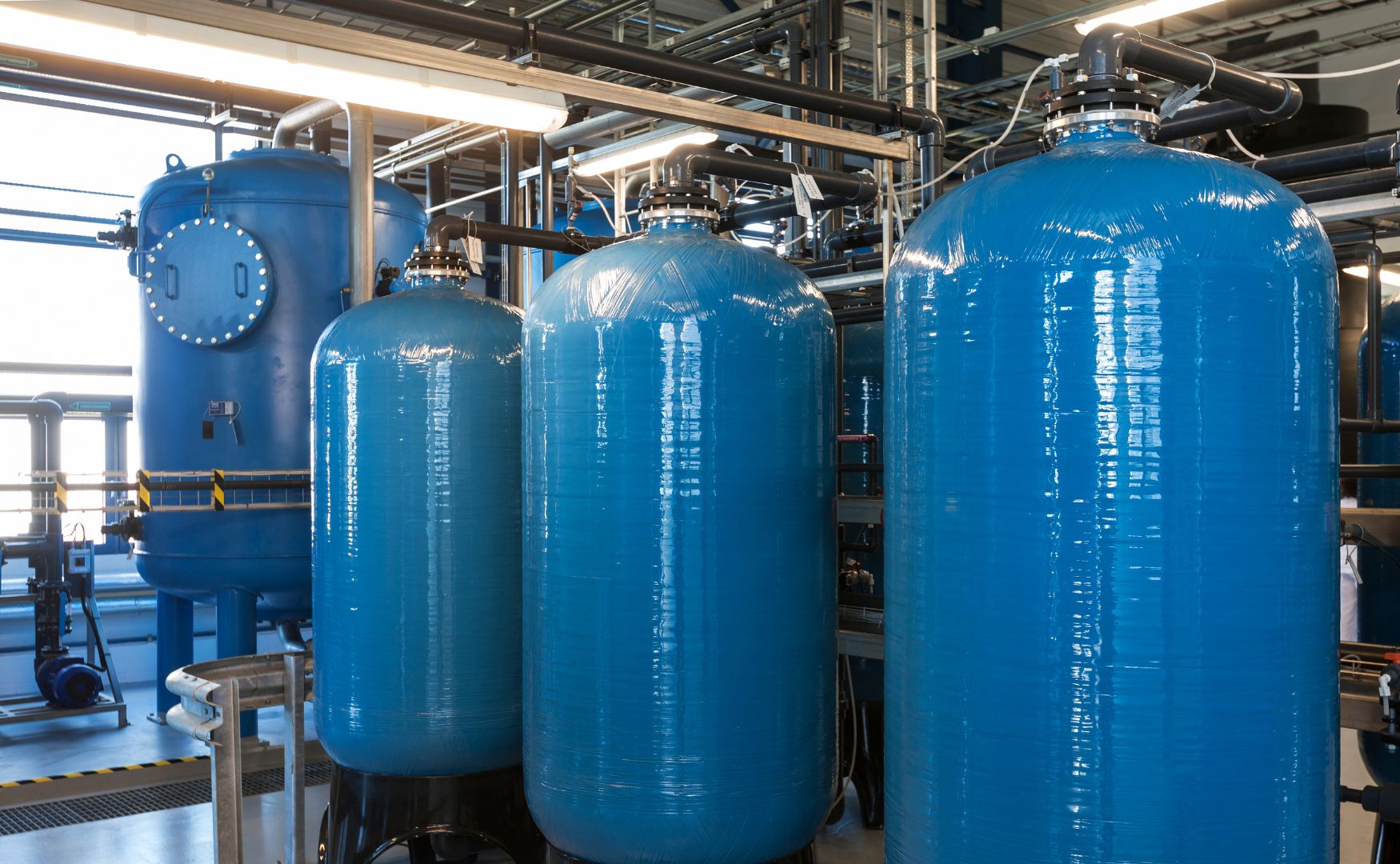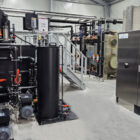German hardness (°dH) is a unit of measurement commonly used in Germany to determine water hardness, which indicates the content of dissolved calcium (Ca²⁺) and magnesium ions (Mg²⁺) in water. These ions are mainly responsible for the hardness of the water and come from natural sources such as limestone (CaCO₃) and dolomite. Water hardness is an important parameter in water treatment, as it has an influence on various industrial processes, the operation of plants and the quality of the water.
Table of contents
Definition and conversion of German hardness
1 °dH corresponds to 10 mg of dissolved calcium oxide (CaO) per liter of water. The following conversion applies:
- 1 °dH = 10 mg CaO/liter water
- 1 °dH corresponds to a total concentration of 17.848 mg calcium carbonate (CaCO₃) per liter of water.
Depending on the degree of hardness, the water is divided into the following categories:
- Soft water: 0-7 °dH
- Medium-hard water: 8-14 °dH
- Hard water: 15-21 °dH
- Very hard water: over 21 °dH
Importance of water hardness in practice
In industrial water treatment, especially in boiler water treatment and in cooling circuitswater hardness plays a decisive role. High degrees of hardness lead to the formation of scale (deposits of calcium carbonate and magnesium carbonate), which severely impairs the efficiency of systems and can lead to corrosion damage. Hardness formers can also form in membrane systems and lead to scaling (incrustation), which reduces the performance of reverse osmosis systems. reverse osmosis or ultrafiltration systems is reduced.

Photo: Reaction loop of the ALMA Neutra automatic neutralization system
Technical challenges:
- Scale formation: In steam boiler systems, high water hardness leads to deposits on the heating surfaces, which impede heat transfer and greatly reduce the energy efficiency of the system. Deposits have an insulating effect, which increases fuel consumption and the risk of overheating and damage to the boiler system.
- Scaling in membrane systems: Calcium and magnesium ions can build up on the membrane surfaces and significantly reduce their performance. This requires regular cleaning or the use of antiscalant products to extend the service life of the membranes.
Measures to control water hardness
To prevent scale formation or scaling, the water is often softened in industrial water treatment plants. Softening is carried out either via ion exchangers, which replace calcium and magnesium ions with sodium ions, or by adding chemicals that precipitate the hardness formers.
At ALMAWATECH we offer with our ALMA ION softening systems specially developed systems for the removal of hardness formers. These systems ensure a continuous supply of softened water, which is required in sensitive processes such as boiler water treatment or cooling circuits.

Photo: ALMA ION water softener for industrial applications
Conclusion
German hardness is an essential parameter in industrial water treatment. High degrees of hardness can lead to significant problems such as scale formation and scaling, which reduces the efficiency of systems and shortens their service life. These challenges can be effectively overcome with suitable water treatment processes, such as softening or the use of antiscalant products.








